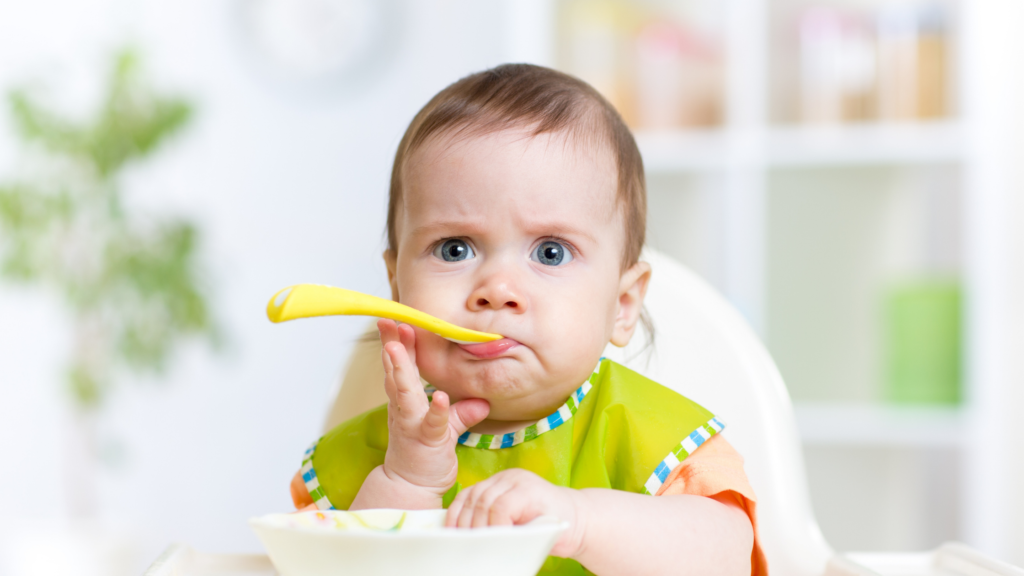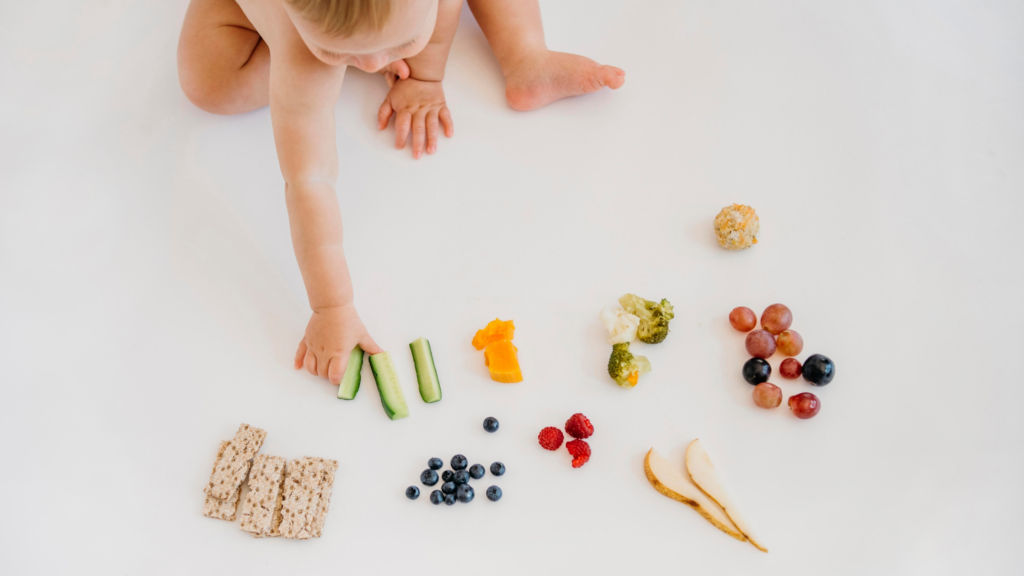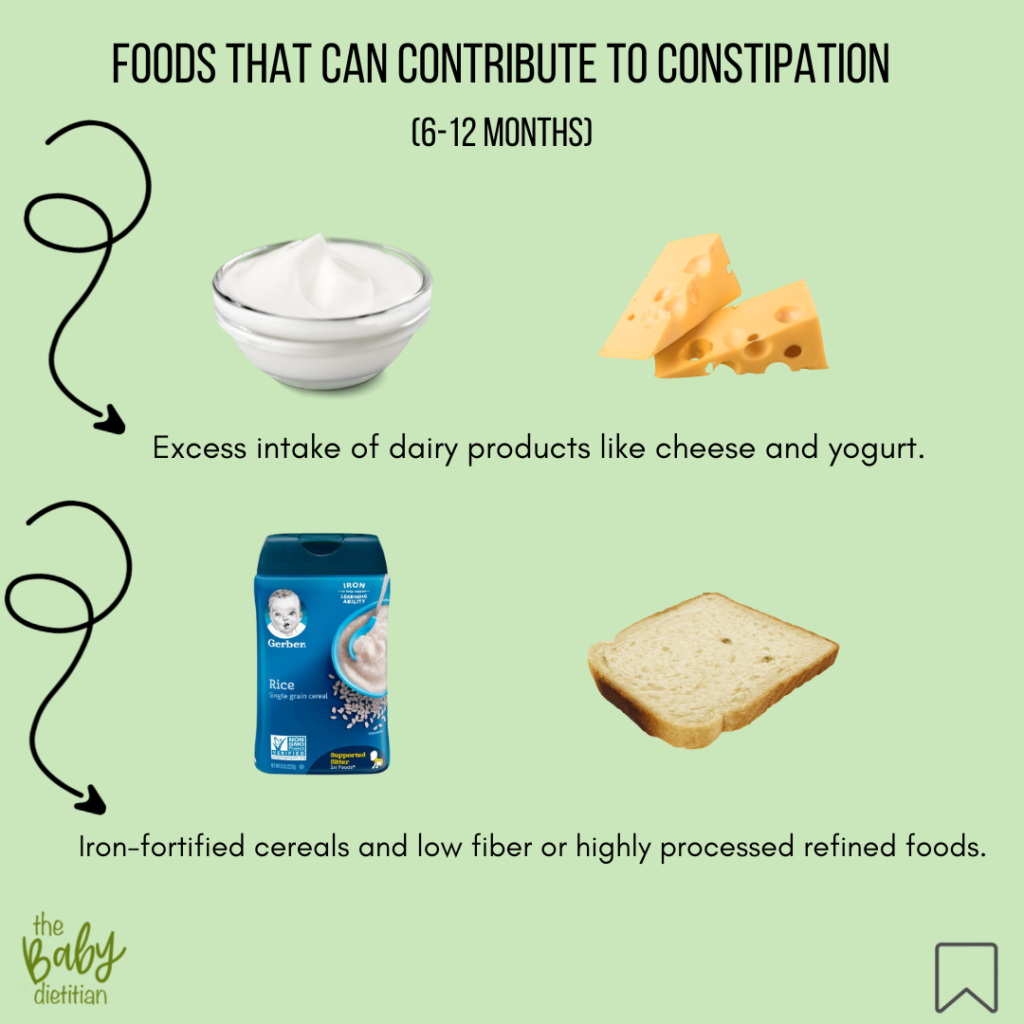How to Help a Constipated Baby or Toddler



Some of the links below are affiliate links. At no additional cost to you, I will earn a commission if you click through and make a purchase.
Does your little one struggle with constipation?
Unfortunately, constipation is a common occurrence in children and there isn’t really much data on why it is such a prevalent issue. Prevalence of child constipation has been estimated to be 1% to 30% in the general population worldwide.
Bowel patterns can vary from child to child just as they do in adults. What’s normal for your child may be different from what’s normal for another.
According to the American Academy of Pediatrics, most children have bowel movements 1 or 2 times a day, but some children may go 2 to 3 days or longer before passing a normal stool!
This post is for you whether your child has been experiencing constipation, or if you’re looking to prevent constipation for your child in the future.
We’ll go over the signs of constipation, how to relieve constipation in babies and toddlers through diet and other remedies, and talk about fiber recommendations.
Let’s help your child poop!
What causes constipation?
- Diet. Changes in diet, or not enough fiber or fluid in your child’s diet, can cause constipation. If the child is consuming high amounts of iron-fortified cereals this may contribute to constipation as well. If a breastfed baby is not consuming adequate milk feeds or not getting adequate tummy time, this can also contribute to constipation.
- Illness. If your child is sick and loses his appetite, a change in his diet can throw off his system and cause him to be constipated.
- Medication. Some medications may cause constipation.
- Withholding. If the child has had a painful experience in the past with passing a bowel movement, they may be afraid to use the bathroom again. If they are in an uncomfortable surrounding like daycare or a new environment, they may also want to avoid going to the bathroom.
Constipation can also be due to:
- Dehydration
- Introducing solids before the GI tract is mature
- Imbalanced gut microbiome
- Limited movement and exercise
- Digestive system dysfunction
- Food allergies
- Iron supplementation
- Body tension
The best way to help resolve constipation is to find out what the underlying cause of constipation is, and then tailor your treatment plan. Always discuss with your pediatrician and pediatric dietitian if your child is struggling with constipation.
Signs of Constipation in Kids
Some or most of the time, your baby or toddler can’t communicate with you that they are constipated.
Sometimes you may think that your child isn’t constipated because you’re seeing at least some sort of bowel movement. Or maybe you’re noticing your child is acting very fussy but you haven’t pieced together what it is.
Pay attention to these potential signs of constipation:
- Many days without normal bowel movements
- Hard stools that are difficult or painful to pass
- Abdominal pain such as stomachaches, cramping, or nausea
- Rectal bleeding from tears, also known as fissures
- Soiling
- Poor appetite
- Cranky behavior

Fiber for Children:
The fiber guidelines for baby are 5 grams/day, but once they are past the age of one year old – the guidelines are conflicting.
One recommendation is 5-10 grams of fiber + age of children and the other recommendation is 19g of fiber per day for a child between the age of 1-3 years old.
For more information on fiber, download out fiber guidelines handout here!

I say – provide a balanced diet full of fruits, vegetables, legumes, and whole grains and you can’t go wrong! The numbers are just a guideline. Don’t stress over the numbers!

A fiber rich diet may prevent constipation because dietary fiber and appropriate water intake keeps stools comfortable, moving, and easy to pass.
Aside from promoting movement in the digestive tract, fiber is also important for satiety and balanced blood sugars leading to sustained energy levels.
Several studies have shown a positive effect of dietary fiber intake in the treatment for constipation in children, and increasing the fiber consumption is the first treatment option for chronic constipation in healthy children.
Current intake studies suggest that all efforts to increase children’s dietary fiber consumption should be encouraged.
Tiny Sprout’s Superseed Boosters are made for baby and milled for easy digestion for maturing GI tracts. They can be a helpful addition to their diet to limit the risk of constipation and ensure adequate fiber intake. Use code: CINDY10 for a discount!

High Fiber Foods for Babies 6-12 Months:
Here are some examples of the fiber content of some foods that you may provide your little ones and how they compare to the recommended 5 grams of fiber per day for children between the age of 6-12 months.


Foods That Can Contribute to Constipation
Here are some examples constipation causing foods. Note that these foods can still play a role in your child’s diet! However, excess amounts of dairy products, iron-fortified cereals, low fiber foods, or highly processed foods can contribute to constipation.

Tips for Reducing Constipation with Diet and Food
- Ensure adequate hydration. Make sure they are receiving plenty of breast milk if under 6 months. If they are over the age of 6 months, small amounts of water can be offered alongside meals.
- Offer probiotic rich foods like small amounts of yogurt. If excess dairy products are not the cause of constipation, a probiotic supplement may be helpful for some – discuss with your pediatric dietitian and pediatrician.
- Include fiber rich fruits and vegetables with all meals and snacks.
- Avoid constipation causing foods, such as excess intake of dairy products and highly processed refined foods.
- If your child is under the age of six months, re-evaluate if they need to wait until their GI tract is more mature before adding in solid food.
- Always discuss with your pediatrician to evaluate if constipation could be caused by other medical issues like food allergies or digestive issues.
- Limiting iron-fortified cereals and focusing on other more natural occurring iron food sources.
- For children greater than 6 months old, small amounts of prune juice or prune puree may be recommended.
Other Natural Treatment Methods:
- Practice tummy time with your little one.
- Increasing child’s activity whether that be bicycle kicks with infants or walks with your toddler.
- Warm baths and infant massages.
- Chiropractor care. (Chiropractor care can help increase parasympathetic activity, which is responsible for proper digestion.) Some parents feel that chiropractor care helps to reduce body tension, which aids in more normal bowel movements.
Conclusion:
Constipation can be caused by a variety of things, with the main cause being related to diet, with not enough fiber or fluids. Some other factors that may contribute to constipation include illness, medications, food allergies, and limited exercise.
Some or most of the time, your baby or toddler can’t communicate with you that they are constipated, so you’ll want to look out for symptoms and bring it up to your child’s healthcare provider if it is a concern.
A diet high in fiber and adequate water intake may prevent constipation because they help keep stools comfortable, moving, and easy to pass. Try incorporating the tips in this post and see if it relieves constipation for your child!

Cinthia Scott is a Registered Dietitian (RD) and International Board Certified Lactation Consultant (IBCLC) ,with over 10 years experience in the field of dietetics. Cinthia focuses on ensuring optimal nutrition in the first 1000 days of life to ensure optimal growth and development as well as set the stage for long-term health. Cindy is an author, starting solids expert, and advocate for caregivers receiving evidence based education and support surrounding breastfeeding and starting solids.
Cinthia is co-author of the 101beforeone Starting Solids Book, “101beforeone -baby-led feeding cookbook,” and is the founder and owner of The Baby Dietitian LLC which is her private practice built to provide virtual 1:1 services for caregivers surrounding infant nutrition, toddler nutrition, and breastfeeding support. Cinthia is also the creator of the Starting Solids 101 Program which provides caregivers 1:1 support from a Pediatric Dietitian on how to provide optimal nutrition from the start and create healthy eating habits that will last their whole lifetime. To work with Cinthia, you can access her services here.
Cinthia provides tons of free information for parents on her social media accounts as well.
- Instagram: @The.Baby.Dietitian
- Tiktok: @The.Baby.Dietitian
